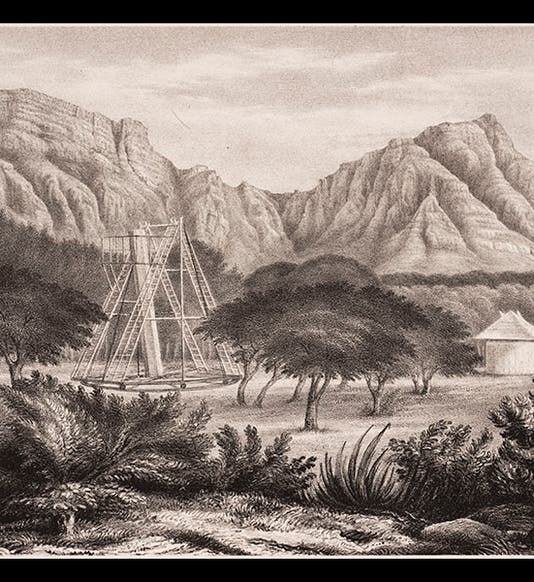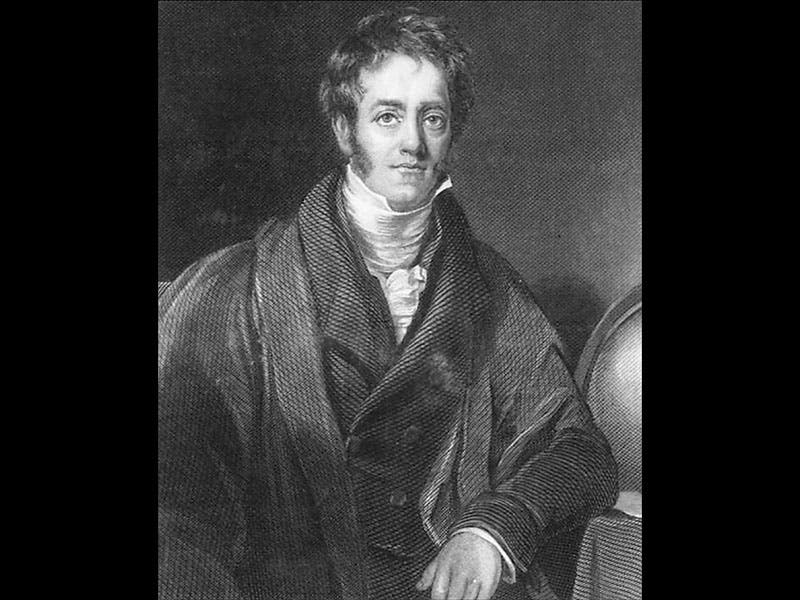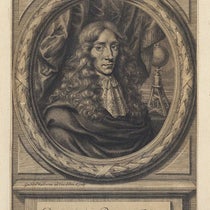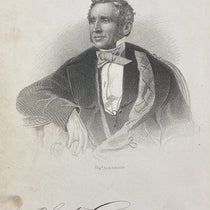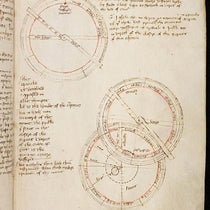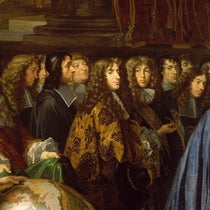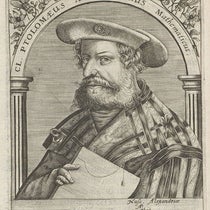Scientist of the Day - John Herschel
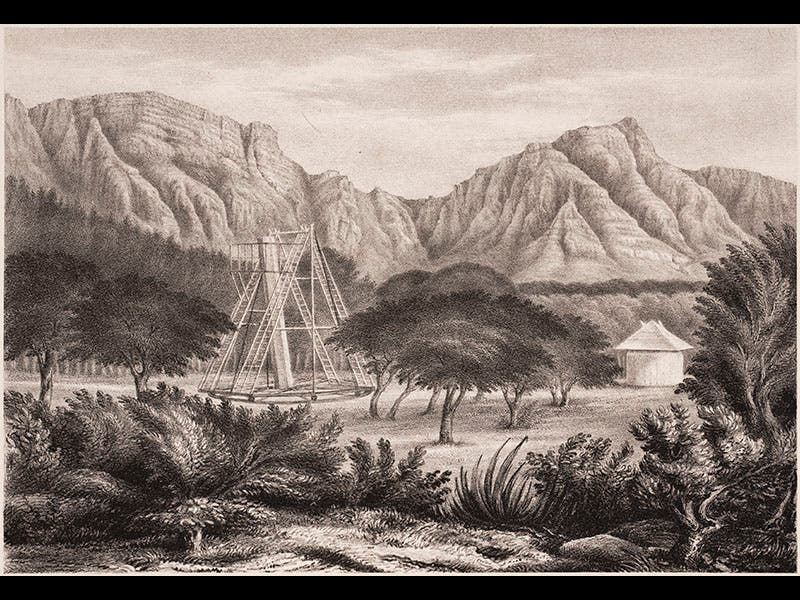
John F. W. Herschel, an English astronomer and philosopher, was born Mar. 7, 1792. He was the son of William Herschel, who in the 1780s built the world's largest reflecting telescopes, with which he discovered thousands of deep sky nebulae (as well as the planet Uranus, discovered by William with a small reflector in 1781). John carried on the family astronomical tradition (Caroline Herschel was his aunt), at one point taking his father's 20-foot reflector to Table Mountain at the Cape of Good Hope in South Africa, where he spent four years observing the southern skies (first image). But Herschel was also interested in scientific method, and his book, A Preliminary Discourse on the Study of Natural Philosophy (1830) had a profound effect on many up-and-coming young scientists, including one Charles Darwin, who cited Herschel's Preliminary Discourse as one of the two most important and influential books he read (the other being Alexander von Humboldt's Personal Narrative).
Herschel also had quite a personal library, part of which he acquired from his father, but most of which he collected himself. Some years ago, we acquired 21 books from Herschel's Library, most with his blue “Herschel Library” stamp. These include four books by his friend and fellow philosopher, William Whewell, a book by Charles Babbage on the Temple of Serapis near Naples, and the works of Thomas Young.
There are several fine portraits of Herschel, one showing him at about the time he wrote the Preliminary Discourse (second image), and the other as a wise old man of 75. The latter portrait is quite famous, because it was taken by the noted Victorian photographer, Julia Cameron (third image).
Dr. William B. Ashworth, Jr., Consultant for the History of Science, Linda Hall Library and Associate Professor, Department of History, University of Missouri-Kansas City. Comments or corrections are welcome; please direct to ashworthw@umkc.edu.

